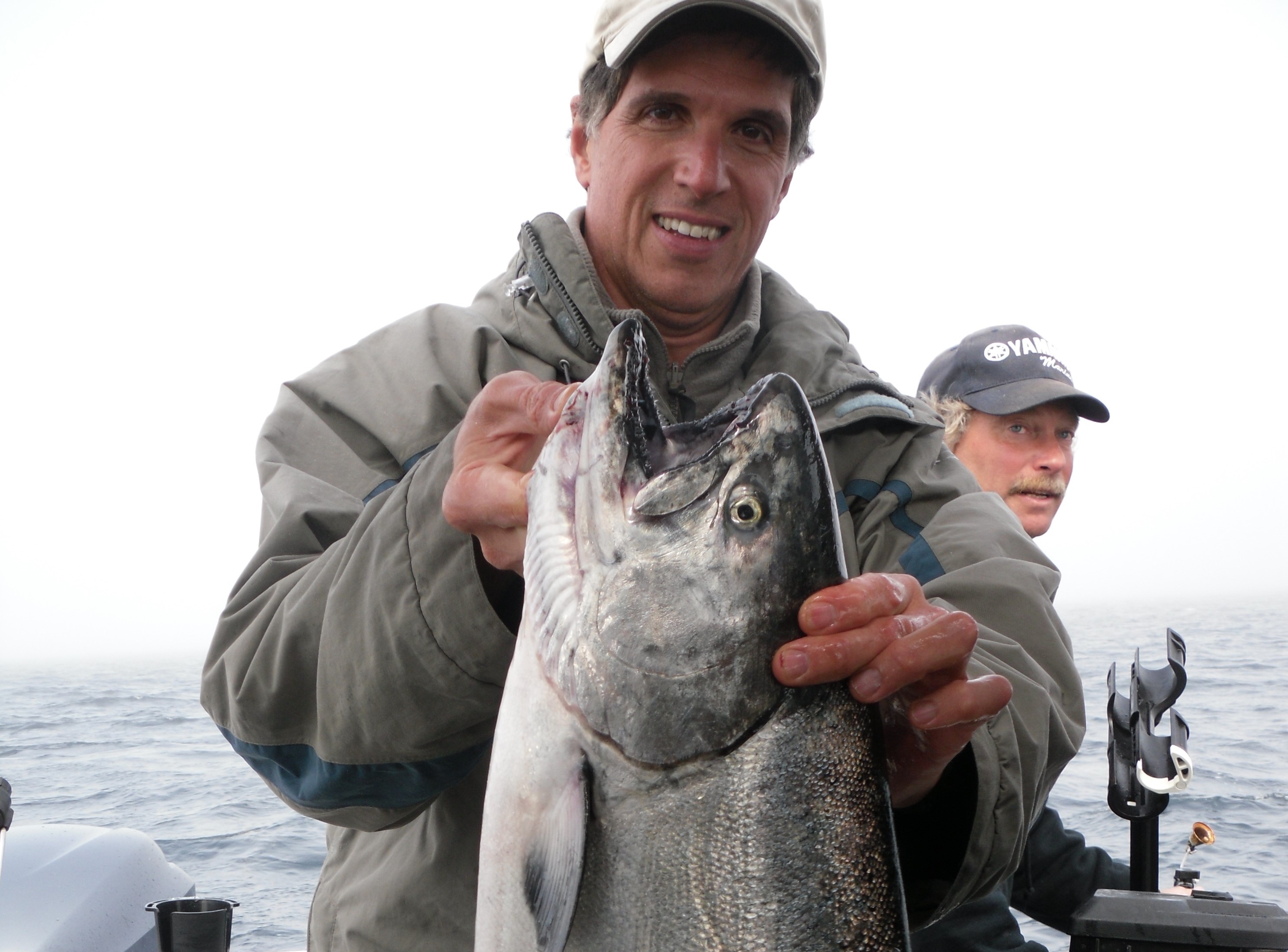Few people understand this more than José Morais, the manager of Food and Nutrition Services at the hospital, and even fewer see what goes on behind the scenes to procure the produce that nourishes those being treated at the hospital.
One particular product Morais has focused on lately is B.C. salmon. Introducing it as a regular menu item at the hospital to increase cultural humility and a sense of deeper connection for patients has been an upstream push.
The Forensic Psychiatric Hospital sits near the shores of the Fraser River, and throughout the summer, Morais, a recreational fisher himself, watched First Nations cast their gillnets into the brackish water of the lower Fraser River in search of Pacific salmon — sockeye, chinook or pink. Since time immemorial, the fish have been a significant food source for B.C.’s coastal and interior Indigenous peoples.
While the fish is a dietary staple for many patients pre-admission, that cultural link diminishes once they’re inside the Forensic Psychiatric Hospital where, for regulatory reasons, Pacific salmon is served only occasionally as a menu item. “Thirty per cent of our food spend has to be on local products,” said Morais. “But it’s not that easy to do. While I can source locally grown fruits and vegetables in the summer, almost all of my protein products — with the exception of chicken — are imported from outside the province.”
While Pacific salmon are as iconically B.C. as Western Red Cedar, the commercially caught fish that Morais purchases doesn’t comply with the 30 per cent rule. Why? While it’s caught in B.C., it’s processed in China. “It’s actually considered ‘imported’ salmon, even though it’s caught right here," he said.
 José Morais with a local catch of chinook salmon.
José Morais with a local catch of chinook salmon.
Morais knew there must be a way to overcome the challenge in order to get patients the food that would benefit them both culturally and nutritionally, and started thinking about ways to access this local catch.
“I see First Nations on the river all the time. I knew there had to be a way I could access it so that it qualifies under the provincial guidelines pertaining to locally produced food.”
After several failed attempts at sourcing First Nations-caught salmon, Morais finally gave up. But he recently discovered that a First Nations business venture in the Okanagan is set to return “Product of BC” branding to Pacific salmon. The Forensic Psychiatric Hospital is one of the first beneficiaries of the venture.
Through Morais, the Forensic Psychiatric Hospital is working with Syilx, also known as the Okanagan Nation Alliance, to procure B.C.-caught and processed sockeye and chinook salmon to meet provincial local food regulations.
The fish is shipped whole to the hospital, where it is prepped and served as a regular item in the five-week menu rotation.
“The more I thought about the salmon on the menu, the more I reflected on how my relative always craves salmon," said Jessica Starlund, a member of the BCMHSUS Patient and Family Experience Council and family partner of Forensic Psychiatric Hospital from the Gitxsan and Nuu Chan Ullth communities. "The summer is the time we are busy with harvest from our healthy territories: berries and salmon. We preserve salmon in jars, smoke houses and fresh. It really is a big part of our identity.”
By supporting the Syilx venture, the Forensic Psychiatric Hospital is also contributing to the First Nation’s desire to rebuild threated salmon stocks across the province to ensure the fish remain a viable natural resource for generations to come.
“By working with First Nations, we can help not only to preserve salmon species but also to raise awareness and acceptance of First Nations cultural values, learn to respect each other and work together.”
“At the hospital, we’d like to play a part in ensuring that B.C. salmon stays in B.C.,” said Morais. “By working with First Nations, we can help not only to preserve salmon species but also to raise awareness and acceptance of First Nations cultural values, learn to respect each other and work together. It would be fantastic if all the six health authorities only served locally caught and processed salmon.”
